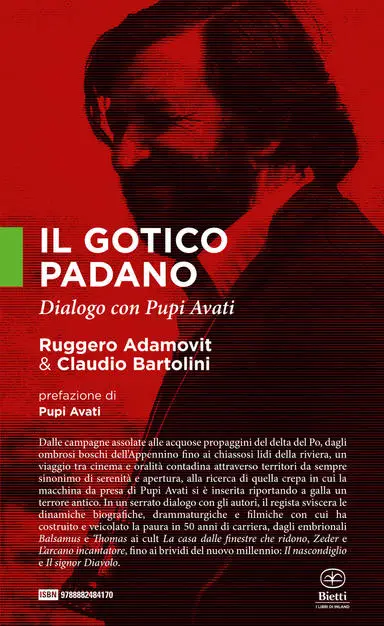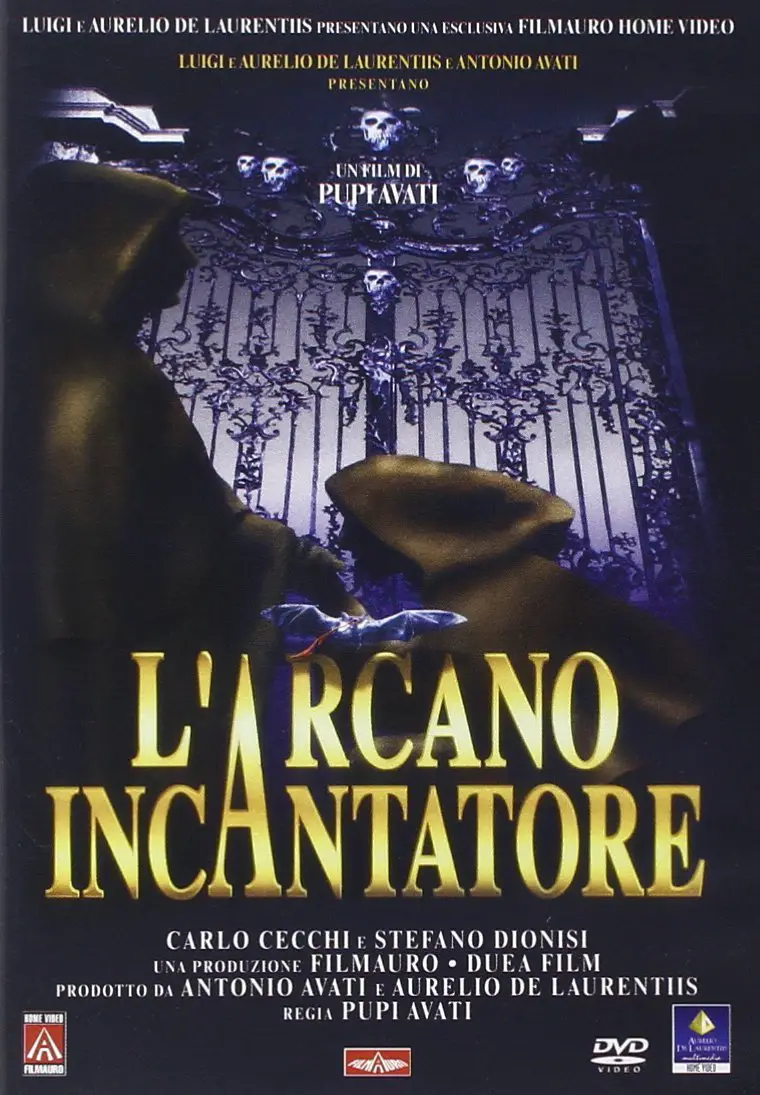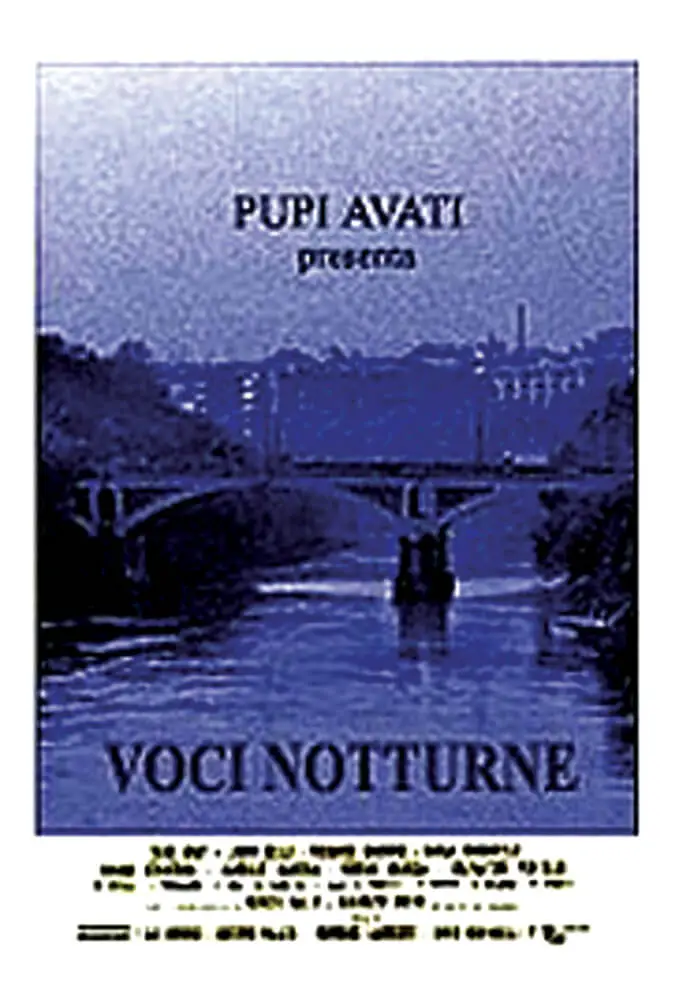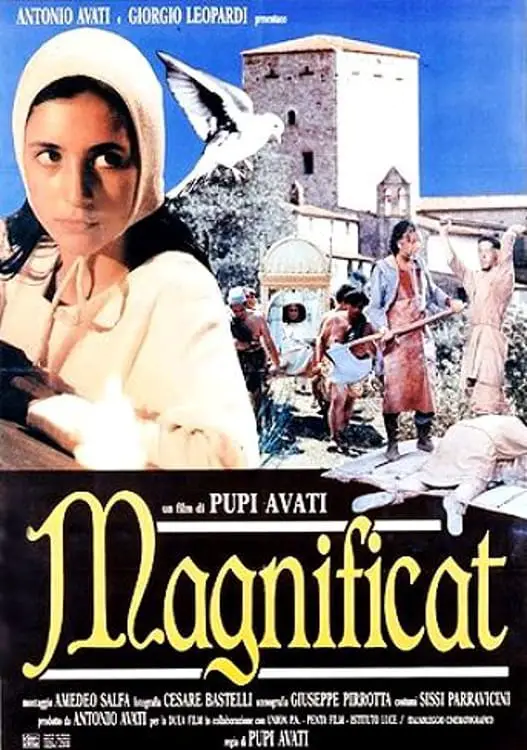For the 45th anniversary of the theatrical release of the cult film "The house with laughing windows”(August 16, 1976), we also propose this interview released by Pupi Avati to Andrea Scarabelli in October 2019, on the occasion of the release of “Il Signor Diavolo”.
di Andrea Scarabelli
originally published on The newspaper the 2 October 2019
It has recently been released in cinemas Mr. Devil, latest work by Pupi Avati, whose fifty-year success is perhaps not due only to technical factors but to a precise "vision of the world" underlying its production. The film was accompanied by two publications, published by Bietti: Po Valley Gothic, by Claudio Bartolini and Ruggero Adamovit, and a monographic issue of inland, which faces the Avatian world at three hundred and sixty degrees, focusing in particular on this "vision of the world", stretched between folklore and imaginary, Middle Ages and modernity, the sunny expanses of Emilia and an Elsewhere closer than one might think. This chat started from here.

What is the keystone of your "fantastic" cinematography?
«It is above all the idea that the fantastic coexists with reality. We are all born with enormous fantastic potential, we live in a world where possible and impossible are contiguous, but then reason causes the unverifiable part to be removed. Creative people, who maintain a relationship with the imaginary, continue to judge reality and unreality as having the same dignity. In short, they admit that the improbable can take over from the probable. I am convinced that there is a parallel, alternative world in which to take refuge and to rely on. Often he is silent, abandoning us to silence and doubt, but he always proposes himself. The relationship with the imaginary is a continuous tribulation, but it is the most lively, mysterious and sacred aspect of our life ».
It is the "Great Elsewhere" that often appears in his films.
«To conceive it, one must place oneself in a condition of listening, starting above all from the conviction that it exists. A state of absolute receptivity, based on a total weakening of reason. Neither The Arcanum Enchanter (1996), to access this Elsewhere, the protagonist lets himself be bled. It is the same condition described by Dante at the beginning of his otherworldly journey, when he speaks of an extreme drowsiness, a continuous exhaustion: it is this state that makes him receptive. According to Robert Frost, the poet is like a transceiver; he receives messages, and only in transcribing them does he discover what he is doing. Likewise, Poe he speaks of the catatonia he is in as he writes his stories, which always describe something beyond Reality. Listening is the opening through which one enters the Elsewhere. The same happens in prayer, a state of sacred expectation in which we await the arrival of something of which we are not the authors ”.

So is there a relationship between the fantastic and the sacred?
“You see, I believe that sacredness is a fundamental component of our life. Everything that escapes reason, which is mysterious and inexplicable, deeply fascinates me. I feel a great nostalgia for the pre-conciliar education of when I was a child, the one defended by Christine Campo, a writer whom I adore, who has been very involved in liturgy. An education endowed with a profound and mysterious sacral component, today viewed with distrust; the God we were addressing was inscrutable. What was indecipherable was the Supreme Good but also, to some extent, the Supreme Evil».
His latest work is dedicated to this aspect, Mr. Devil.
«The theme is precisely Evil, which has an importance that should not be underestimated. I have the feeling that, like the Good, he too plays a significant role in our existence. From this point of view, it can be said that the sacredness of the Good is the sacredness of Evil have, in some way, equal dignity. Of course, there is also an Evil for Evil, with no apparent purpose, often exercised by men of power. I can't define it. Either it is linked to psychiatric disorders or it finds a justification in that Beyond which I have already talked about, thanks to which we pass from Good to Evil. And here appears, in the title of the film, the Mr. Devil».
It is, among other things, a now "normalized" evil.
«You see, once upon a time, when I was little, the so-called examination of conscience was practiced. The feeling is that, today, not only does no one induce us to carry out this self-analysis, but that there is a sort of self-absolution, a moral prêt-à-porter which finds its justification in the useful. Just go to church: during Mass, Communion is given to everyone. Yet, no one confesses anymore. They all absolve themselves or, perhaps, not even ask themselves the problem of their sins. I realize this and I understand that I am part of a world that is disappearing ».

I was very surprised to discover, in Po Valley Gothic, which one of his favorite books is The morning of the wizards, manifesto of fantastic realism.
“When I first read it, I saw something opening up that I instinctively already sensed, connections I had never thought of with the clarity and clarity that would give them a verisimilitude. I had a feeling that Louis Pauwels and Jacques Bergier they were giving me a key with which I could reread the story through a completely different approach, a freedom that would then have prompted me to write the series Voices of the night (1995), which he recalled the rites of Archaic Rome, bringing them back to the present. A fantastic prospect, fantasy, which for years and years has fascinated me. Well before Dan Brown and the like ».
In his films he has often dealt with Middle Ages.
"In Magnificat (1993), for example, with his Rossellinian approach to history, reconstructed through the French Annals that seriously dealt with the High Middle Ages. Studying these texts, I was amazed to see that Italian historians had not properly probed and recounted that period. That of Magnificat è a Middle Ages in which sacredness is everywhere: in people, in things, in life, in death. Inside me, I feel that our roots lie right there. Over the centuries, we have done everything to hide them, to silence them. Yet, precisely in this sacral approach to the Whole which is mysterious but, at the same time, perfect and harmonious my authenticity lies ».


A comment on "Pupi Avati's fantastorico Elsewhere"